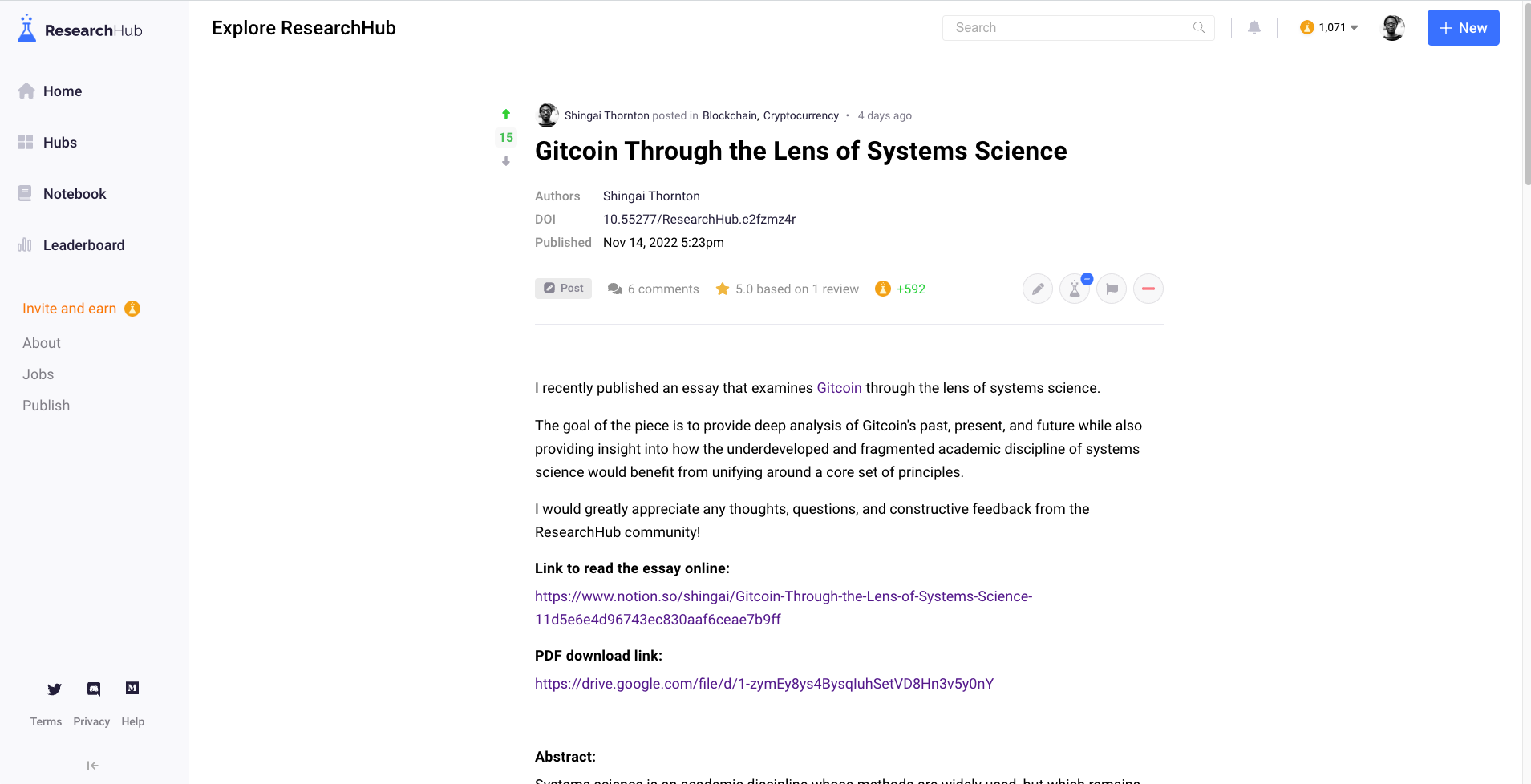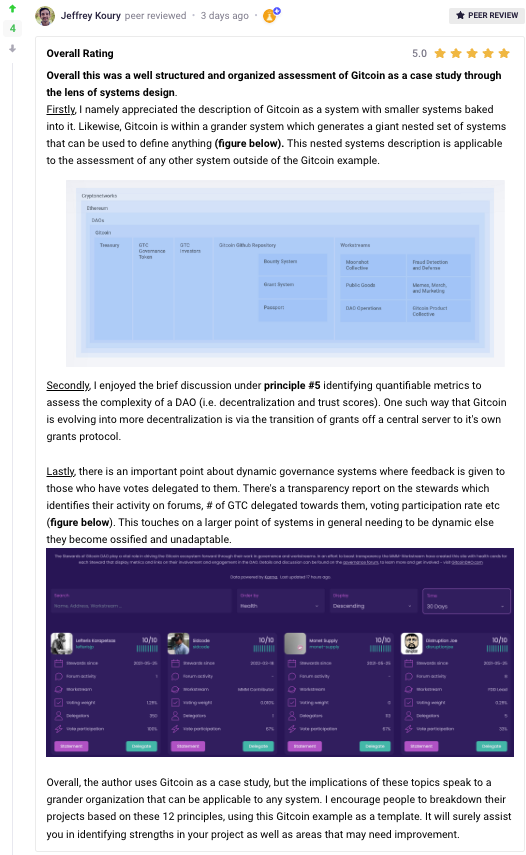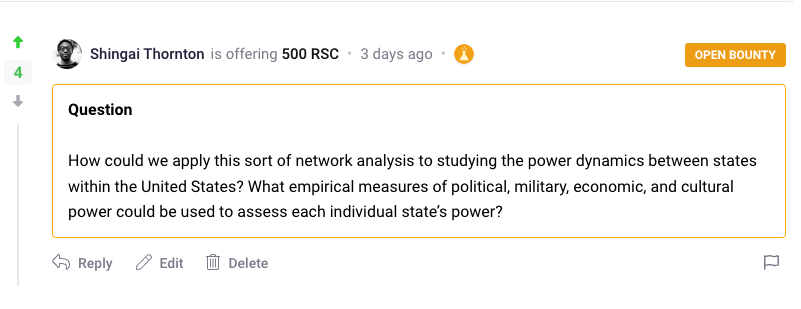
ResearchHub
ResearchHub is on a mission to accelerate the pace of scientific research.
The team wants to empower academics to interact in a fully open and collaborative manner. They envision ResearchHub doing for scientific research what Github has done for software engineering. They believe that the scientific record is too important to be hidden behind paywalls. That we need an alternative to the current journal-based paradigm which stifles scientific progress.
ResearchHub is co-founded by Coinbase CEO Brian Armstrong, and Patrick Joyce, a former medical student at Georgetown University.
Researchers can use the open-source and open access ResearchHub platform to upload existing papers that have been published in journals. They can also publish and share original research. There is a comment section for each post where research can be discussed. The community is organized based on "Hubs" that are dedicated to specific disciplines like Neuroscience, Biology, and Chemistry.
Researchers are rewarded for contributing to the platform with a cryptocurrency called ResearchCoin (RSC.) RSC can be used for:
- Tipping the papers and comments of other users
- Creating bounties for tasks you'd like completed. Like peer review or data collection
- Participating in the ResearchHub DAO that governs the platform
The goal is to use RSC as a mechanism to change the incentives for scientific research. Give direct financial rewards to people for doing quality research rather than using publication in a prestigious journal as a proxy metric for scientific quality. Reputation within the ResearchHub ecosystem is directly linked to RSC earnings. RSC functions as "scientific karma."
My experience using ResearchHub
ResearchHub has been on my radar for a while. But it wasn't until last week that I felt inspired to use it. I recently published an essay on Gitcoin and have been eager for feedback. So I decided to upload my paper to ResearchHub and see what it felt like to use the platform and interact with the community.
The first thing I noticed was that I could only create an account by logging in with Google. As a crypto native, I was annoyed. Logging in with Metamask would have been preferable.
However, if the goal is to onboard mainstream researchers, then this decision makes perfect sense. The process is straightforward, with no crypto jargon or technical hoops to jump through that might scare potential users.
After signing up I could upload my paper. Since it wasn't published in a traditional journal I uploaded it as a "post" rather than as a "paper." I provided a link to the essay, the abstract, and shared my desire for thoughtful feedback.

I started receiving upvotes on my paper pretty quickly which felt good. Then, Patrick put up a 500 RSC bounty for anyone who did peer-review on the post. This was helpful as I hadn't had the opportunity to earn RSC and put up a bounty myself.

Twelve hours later, I had received a great piece of feedback.

I've accumulated 1,071 RSC from upvotes and tips on my posts during my first week on ResearchHub. Once I had some RSC to spend I immediately uploaded one of my favorite papers on network science and posted a question bounty of my own.
The system doesn't seem to incentive hoarding and speculating on the future value of RSC. It incentives using RSC as a means of accomplishing specific research goals.

These are a few interesting papers I've found while browsing:
- In vitro neurons learn and exhibit sentience when embodied in a simulated game-world
- Undetectable very-low frequency sound increases dancing at a live concert
- Valuation of DeSci Projects
Final Thoughts
ResearchHub is easy to use and gamified in a way that feels fun. The team has done a great job of abstracting away the complexities of using crypto. It doesn't feel like you're interacting with cryptocurrency unless you choose to withdraw your RSC to a private crypto wallet.
The community is small, but healthy. I haven't noticed any spam or trolling. People are focused on discussing content and learning, not arguing or self-promotion.
It does seem like most of the active users come from a background in the biological and medical sciences. This makes sense given Brian's interest in biology and longevity, and Patrick's background in medicine. I'd love to see more users on the platform with a background in the social sciences and systems/complexity science.
I plan to continue interacting with the community and watching the project's progress. ResearchHub's goal, to build a system that "is completely open and accessible to everybody, everywhere, with no content residing behind paywalls and no costs to participate," is ambitious and worth supporting.
For more on ResearchHub:
- Read the ResearchCoin Whitepaper
- Watch this interview with the founders
